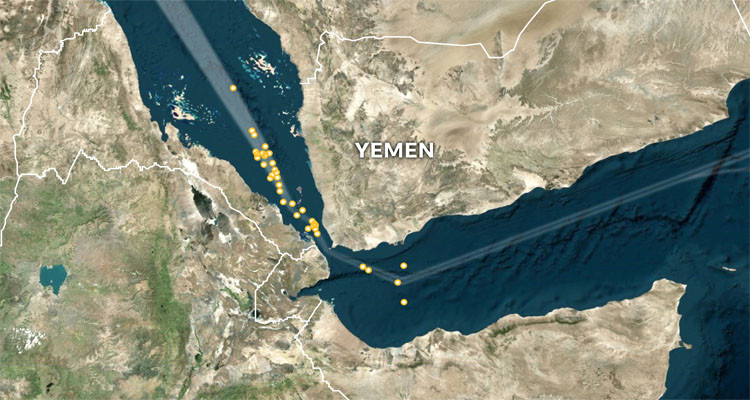
Red Sea Disruptions Exacerbate Global Food Supply Issues
The crisis in the Red Sea is escalating problems with global food supplies, impacting shipments of various products ranging from coffee to fruits. This crisis, along with the threat of slowing down the inflation of food prices that provided some relief to anxious consumers, is having far-reaching consequences.
Currently, ships loaded with food items are navigating around Africa to avoid Houthi attacks in the main waterway. This alternative route imposes longer and more costly journeys. Unlike shipments of gas, oil, and consumer goods that were also affected by these attacks, the extended shipping duration poses a risk of making perishable foods unsellable.
This crisis is instilling fear in the industry, with Italian exporters fearing the spoilage of kiwi and citrus fruits en route. Chinese ginger is becoming more expensive, and some shipments of African coffee have been delayed. Grain trucks have been redirected from the Suez Canal, and livestock carriers heading to the Middle East have altered their routes. The entire supply chain is grappling with the repercussions of the Red Sea disruptions, adding strain to an already delicate global food supply situation.










